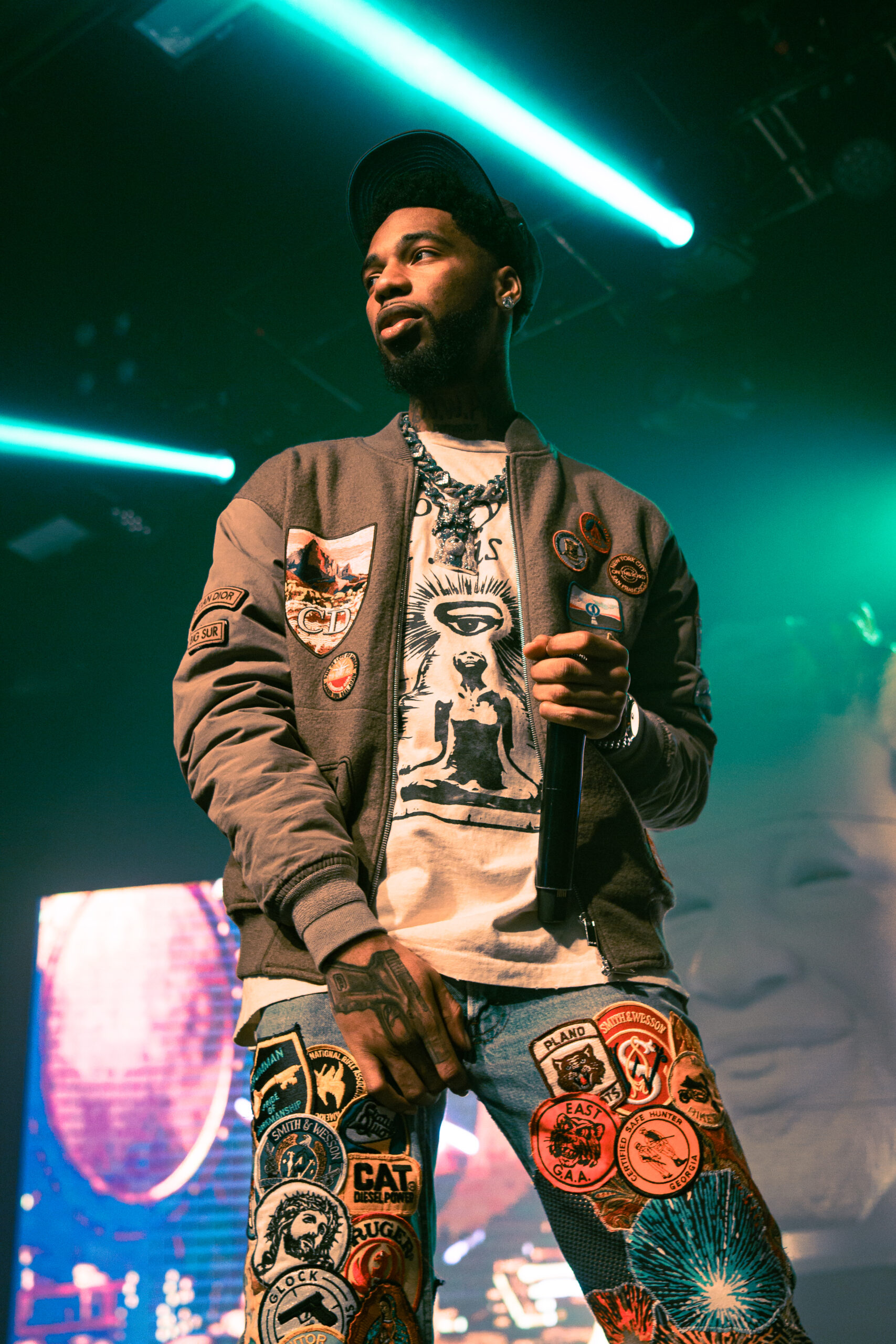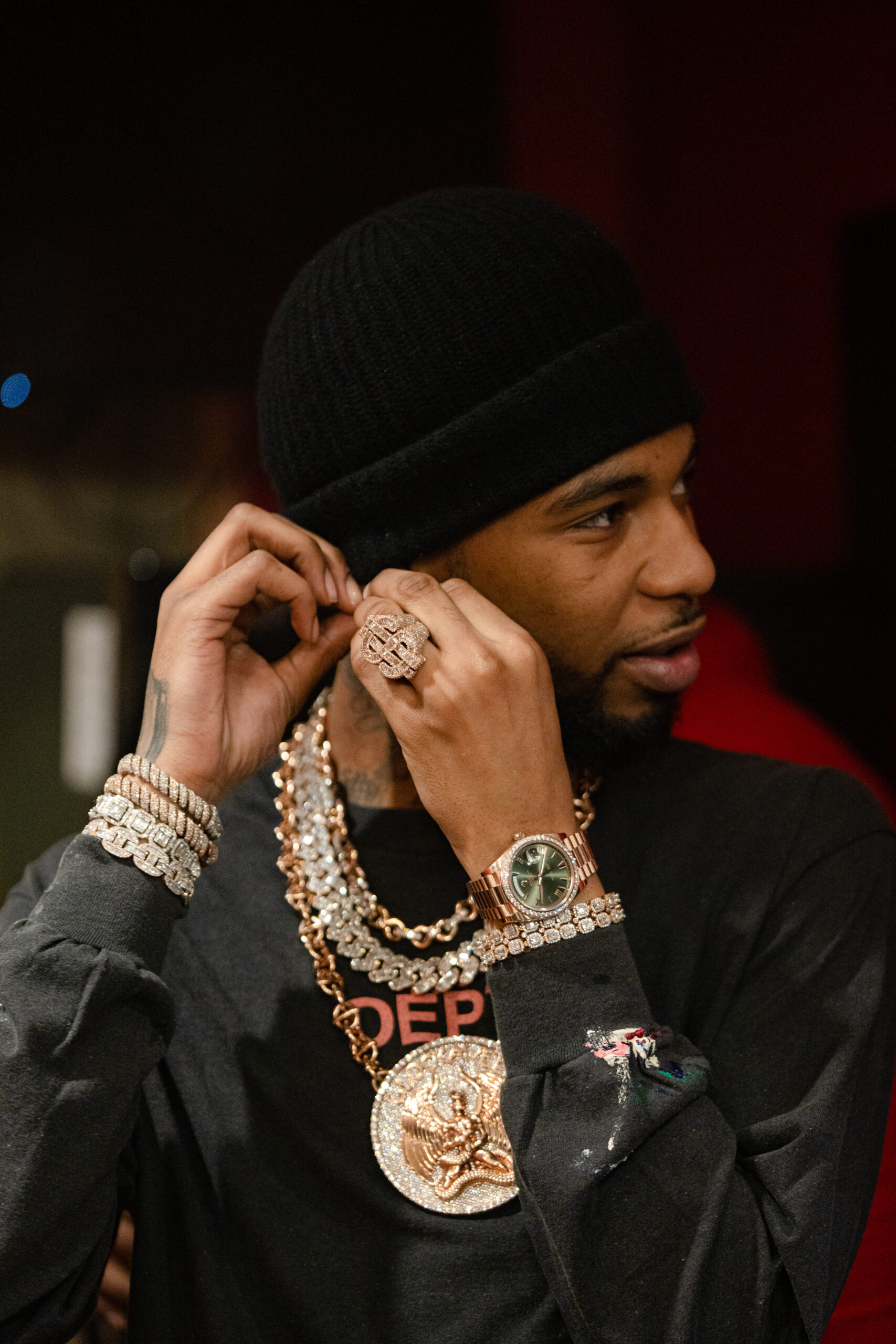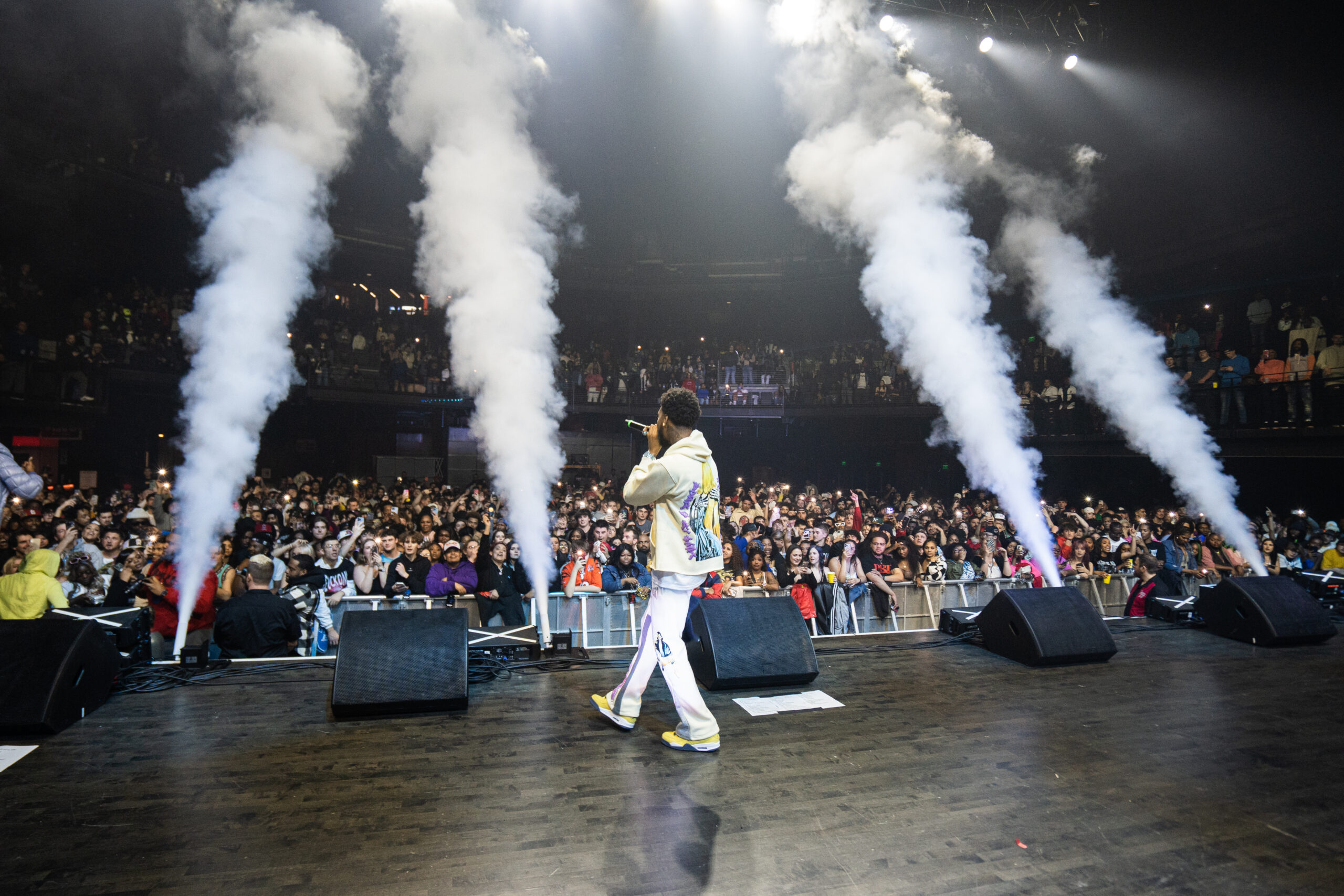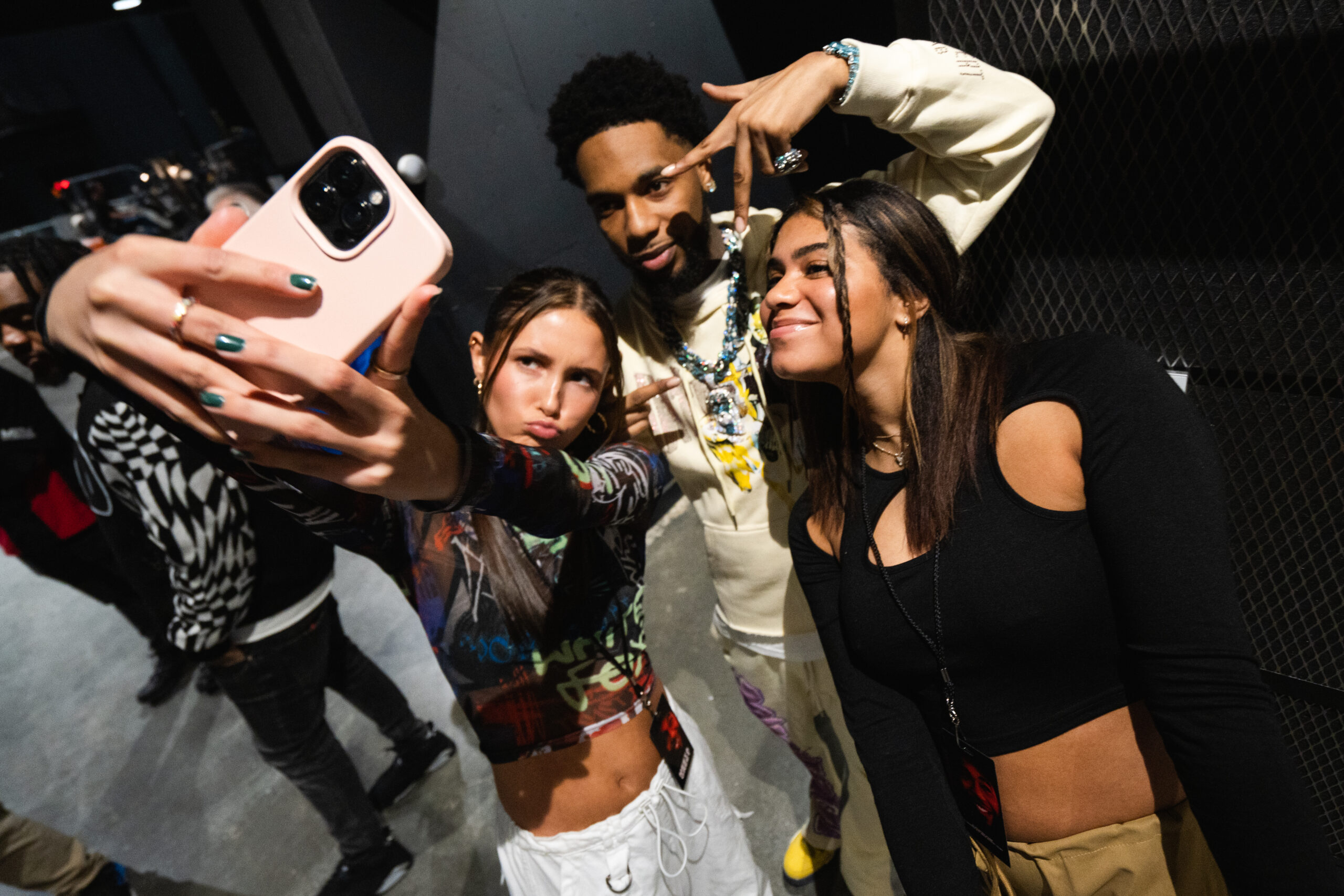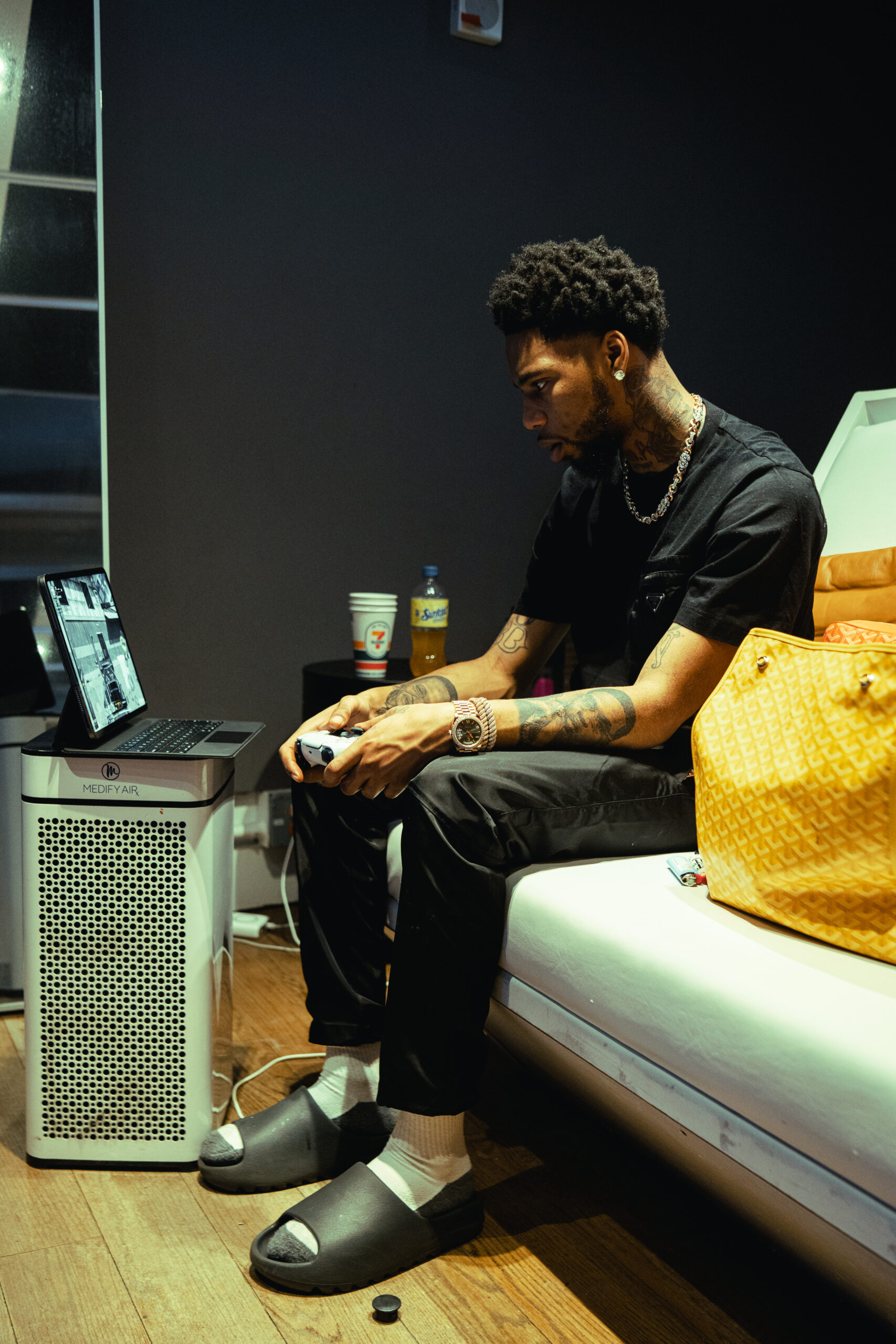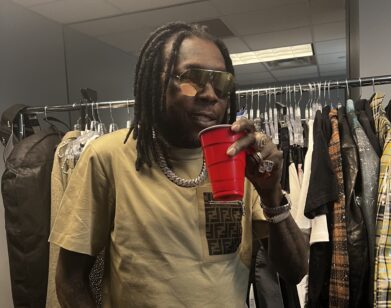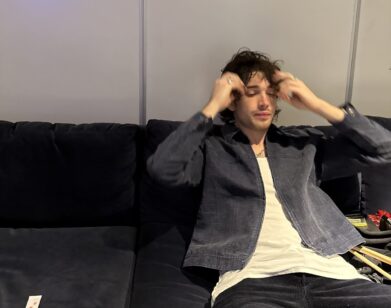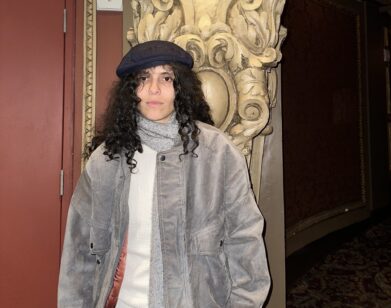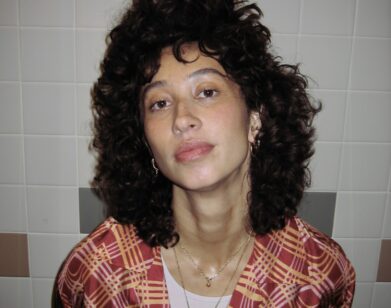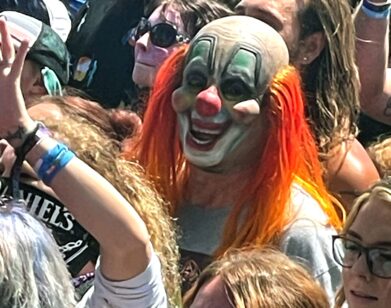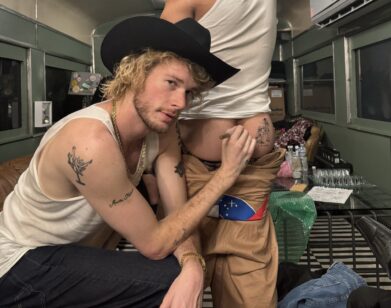TOUR DIARY
“I Need an Arena Tour”: 24 Hours on the Road with Key Glock
Memphis rapper Key Glock knows he isn’t just on tour; he’s in a “manifestation.” Hours after sending swarms of people into a frenzy, Key Glock is decked in blue jeans and a Gallery Dept graphic T-shirt that reads “The Only Way Out…Is In” on his recent headlining tour stop at the 3,200-seat Knockdown Center in Queens. His smile is muted, and he’s sporting the kind of gaze that suggests he’s looking through you, likely to a future he knows is coming. “I need an arena tour,” he asserts staunchly. He’s a Madison Square Garden-sized presence in a small dressing room, and he knows it.
This sense of calm is his musical superpower. His quiet storm flow is a torrential barrage of unvarnished street tales and money motivation mantras told in a voice that barely raises above a rumble. He traces his upbringing, from robbing the person who sold him cannabis at 15 to making his first million dollars at 18, on a song like “Key Rex” off his recent Billboard Top 15 album Glockoma 2. The dark and syrupy southern drawl, reminiscent of Memphis rap legends Three 6 Mafia, has hypnotized millions of people—10.5 million monthly on Spotify, to be exact—from street corners to corporate cubicles into channeling their own inner Glock. He’s a self-help guru who raps.
From sunrise to sunrise, Key Glock took us through life on tour—before, during, and after his NYC show. Come take a look into the nocturnal sleep schedule, tour bus recording sessions, $20,000 shopping sprees, and soul food wake-up meals that make up a Key Glock tour stop.
On Glock’s tour bus before a show, the only time zone his body responds to is Key Glock Time. The “In & Outta Town” rapper starts his day five or six hours before doors open, at which point he’s fueling himself with his first meal of the day. Glock’s travel diet is as unorthodox as his tour life circadian rhythm, which operates on a far different schedule than those waiting all day to see him perform.
“I eat breakfast throughout the day, but I mainly eat soul food and seafood,” Glock slyly says about his tour diet. “[I eat] fried lobster, oysters; stuff like that.”
Tour life, with the constant changes in environments and unpredictability of schedules, can be anathema to maintaining a routine. “I just drink a lot of water. I don’t work out,” Glock jokes. “I don’t get a gallon in every day, but I try.” Before the Queens show, Glock was on the road nonstop, doing six shows in six cities in seven days. As much as Glock tries to prioritize hydration and hearty meals, he also pencils in some time to explore each new city in which he finds himself.
The day before he performed at Knockdown Center, he’d taken a reprieve in order to catch up on one of his favorite pre-show activities: making money. “I got [into NYC] in the middle of the night because I went to the casino. I don’t know exactly what time it was, but I would’ve been here a little earlier if I didn’t go to the casino in DC,” Glock says, with a mischievous smirk. “My hotel was a casino, so I was there the whole time. If I wasn’t at the show, I was at the casino.”
He stands by the tour mantra “get a bag, do a show, then I roll,” as he rapped on the Glockoma 2 track “Money Over Hoes,” so he found himself rolling dice at the craps table. When I broach the question of his winnings, Glock casually tells me he “won something light.” But hearing about his shopping excursion in NYC, I suspect he did well for himself. Even though he arrived in NYC in the wee hours of the night, he found time to hit up two high-end stores. “I know I just spent $20,000 on clothes,” says Glock, who prides himself on conceiving his outfits without the help of a stylist.
There are no balconies or seating sections inside the Knockdown Center, a cavernous century-old factory-turned-performance art space. There are just waves of people practically glued onto one another in a dimly lit exposed brick industrial building, many of them having waited in line since doors opened at six pm. Around nine, the man of the hour sauntered onto the stage. He may have woken up six hours before he hit the stage and skipped rehearsal, but he shows no signs of either rust or exhaustion, unleashing his non-stop, machine gun-like energy to an unhinged crowd.
On stage, Glock is flanked by a massive white molding of his head, as if it had fallen off hip-hop’s Mount Rushmore. Add in the smoke billowing from the stage and it was easy to mistake this former door factory for a Memphis nightclub. There was an unmistakable synergy between him and the crowd. When he dug six years back into his catalog to his 2017 Glock Season 3 hit “On My Soul,” he vociferously rapped,” I tore my ACL,” only for the eager crowd to drown him out by finishing the lyric: “I ball too hard like Derrick Rose.“
Whether it was heaters from his latest project Glockoma 2 or a dedication medley of his late mentor Young Dolph’s “100 Shots,” Glock was appreciative of every moment. You couldn’t see it on his face, but the New York City crowd offered a surprising bit of validation to the Southern MC. “It always surprises me because it’s harder to get New York respect as a southern rapper. I ain’t saying it in a bad way, but there are only certain artists from down South they’ll take in.”
Around 9:50pm, Glock ended his set and left the stage, but his night entertaining his fans was far from one. For over an hour after his show, he stood in a vacant and unremarkable corner of the venue and gave one-on-one time with all walks of life, snapping photos with fans in wheelchairs, couples with matching Key Glock tour shirts, and NYU freshmen drenched in the afterglow of their first Key Glock show. Some showered him with bags of cannabis; others pledged their love and loyalty.
39-year-old Sara kept her hand on Glock’s arm, staring into his eyes while singing him a song she had written. She flew more than 500 miles from Detroit just for this show. “I lost my daughter and my papa,” she tells me. “I would get in my car, listen to his music, and it would motivate me to keep going even though I was depressed.”
Key Glock himself is genial yet stoic, like a man appreciative of the love but conscious of the venue curfew. His encouraging words and banter were genuine, but so was his observable fatigue. After he shook the last hand and took his final picture, he still had to be Key Glock for a few more hours.
Downstairs in his cramped green room, he’s joined by his entourage, security, and tour manager. If the Knockout Center hadn’t had a strict curfew, he would’ve done what he always does after shows. “Normally, I’d be recording right here in the green room, but New York has a curfew,” he explains. Sitting across from him, you can see the hunger when his gaze catches yours. He’s in constant motion and still managed to record upwards of seven songs after his shows by the time he got to NYC. “We’re going back on the bus after they kick us out of the venue,” he says. “We are going to record on the bus.” At some point, when the sun rises, he’ll close his eyes and shut down for the day until it’s time to wake up in a new city and do it all again.

